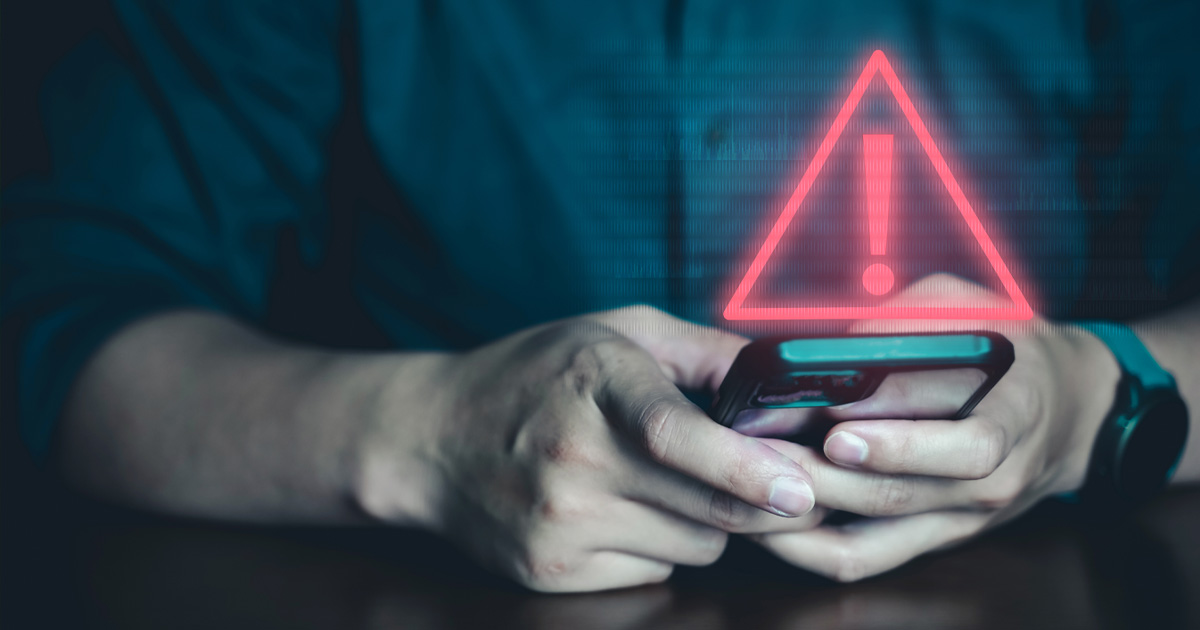Unmask the Risk of Digital Money Transfers

Peer-to-peer (P2P) payment apps like Venmo, PayPal and Cash App enable users to transfer money to each other swiftly. While these apps make the process of reimbursing friends or sharing expenses easier, they don’t come without risks. There has been a recent uptick in fraudsters exploiting these apps to deceive users and steal their money. We’re breaking down what P2P payments are and ways you can protect yourself from being scammed.
What are P2P payments? P2P payments are transactions that allow individuals to transfer funds directly to one another without going through a financial institution. The main advantage of these platforms is the convenience they offer. In just a few taps on your smartphone or clicks on your computer, you can instantly send or receive money without writing checks, dealing with cash or waiting for a bank transfer.
Do P2P platforms protect from scams? While P2P platforms incorporate some security measures like encryption and multi-factor authentication, it’s important that users remain cautious since money cannot be recalled by a user after it has been sent.
Here are five common P2P payment scams to watch out for:
- Utility scams - A utility scam occurs when a scammer poses as an official from a gas, water, power or other type of utility company. They often threaten to turn off a utility unless a payment is quickly made.
- Marketplace scams - Marketplace scams are common on sites like Facebook Marketplace and Craigslist. Scammers pose as sellers who ask for a payment first without holding up their end of the deal. Once they receive a payment, the fake sellers disappear without delivering the products or services you purchased.
- Ticketing scams - Similar to marketplace scams, sellers will promise tickets at a certain price then disappear as soon as the victim sends a payment. In some instances, they’ll even send a counterfeit ticket that won’t work once the buyer tries to enter the event.
- Overpayment scams - Overpayment scams involve a scammer sending a payment that is higher than the agreed-upon amount. They then ask the victim to refund the difference. Once the victim refunds the difference, the scammer cancels the original payment, leaving the victim with a loss.
- Phishing Scams - Phishing might involve fake emails, texts or calls pretending to be from popular P2P apps like PayPal or Venmo. The scammer might claim there’s a problem with your account and ask you to click a link or provide login details to “fix” the issue. Once you do, they can access your account, make unauthorized transactions or even lock you out.
If you plan to use P2P platforms to purchase goods or services, it’s important to approach transactions with caution. Here are some steps you can take to help prevent P2P payment fraud:
- Research the seller - Before sending money, check the seller’s reviews or feedback if available. Avoid transactions with sellers who have negative reviews or seem suspicious.
- Avoid the friends and family option - On some platforms, such as PayPal, sending money using the “Friends and Family” option waives your right to buyer protection. Always use the “Goods and Services” option when purchasing items.
- Document everything - Keep records of your communication with the seller, including screenshots, descriptions, prices and any other relevant details.
- Confirm delivery methods - Ensure that you have a clear agreement on how your purchase will be delivered, especially if it’s a physical item. If possible, opt for trackable shipping methods and require a signature upon delivery.
Always be cautious, do your research and use the built-in protections available on P2P platforms when you use them to buy goods or services. When possible, reserve using P2P platforms to transfer funds with trusted individuals.
For personalized financial guidance, schedule an appointment today at a Financial Health Center.
Make an Appointment
Schedule your appointment with the Financial Health Center today. Choose the date and time that works best for you.
Get Started